- Home
- Alison Weir
The Curse of the Hungerfords Page 5
The Curse of the Hungerfords Read online
Page 5
So I watched them, saw him partnering her in the dance, walking with her in the spring sunshine and sitting by her side amidst a crowd of gentlemen sharing an amusing story. Of course, rumour was rampant.
The affair lasted for many months, and the longer it went on, the more likely it seemed that a royal wedding was in the offing. Until, at Christmas, the King asked me to dance.
One dance led to another, and I could see Margaret Skipwith’s flushed, resentful face, as she stood at the side of the hall, by herself. But the King had eyes for me alone. A week later, he invited me to sit beside him at one of the Yuletide feasts, and was most attentive.
‘I have always liked you, Mistress Anne,’ he said, helping me to a choice morsel from his own plate. ‘I trust you will look upon me as your servant.’
I took his meaning, but he mistook my amazement for reluctance.
‘I would serve you alone,’ he murmured, taking my hand beneath the tablecloth.
It was so unexpected. Could I love him? I asked myself, rapidly trying to collect my thoughts. He was the King, and he had always been good to me, but I knew there was a cruel side to him. He was a man too, a man who was no longer young and who was growing stout. Yet I hesitated no longer.
‘Pardon me, your Grace, for not answering immediately,’ I gabbled. ‘I was overwhelmed by the honour. I would love nothing more than to have you serve me.’
Too late, I recognised the double-entendre in what I had said, and felt my cheeks grow hot. But the King was rocking with mirth.
‘I take it you mean in the courtly fashion,’ he grinned. Suddenly, I was laughing too, and from that moment, everything was easy between us.
Henry – for thus I was now permitted to call him in private – spared no effort to make me feel cherished. He laid on private banquets, over which I presided like a queen; he took me hunting with him; he visited me of an evening after Vespers, and we talked and talked, quite intimately. I know things about Henry Tudor that I have never revealed to a living soul.
There was more to it, of course. The midnight hour would find me in his arms as we exchanged increasingly urgent kisses and caresses. Yet, to my surprise, he did not press me to bed with him. It left me wondering if he was capable of lovemaking, with his increasing bulk and his bad legs. Had he asked me, I would have put him off, for I was not that far from forgetting myself, or my honour. My maid was always in the outer chamber, within earshot, and never once did I overstep the bounds of modesty.
Did I love him? Yes, I did, although I was not in love with him. I have never been in love with anyone, so do not know what it feels like. I loved his presence, his masculinity, his power. I loved what he could give me, and if he had given me a crown, I know I would have loved him all my life for it.
Of course, people were talking about us. I first realised which way they thought the wind was blowing when the Imperial ambassador, Messire Chapuys, came with one of his gentlemen and brought me gifts of venison and wine, saying they hoped I would be a friend to the Emperor. I was stunned that they thought I had that kind of influence, stunned, too, to be treated with the deference that belonged to a queen.
I never abused that influence. I asked only for small favours. Mother would have expected more of me, but Mother was in Calais and didn’t know what was going on. I certainly did not tell her, and if she heard gossip, she never mentioned it in her letters. I’m sure she didn’t hear anything, for her ambition would have been uncontrollable, and she would have bombarded me with orders and advice. But she was preoccupied with my sister Mary’s growing infatuation with Gabriel de Bours, the son of the Sire de Bours, and with trying once more to place an unwilling Kat in the service of the equally unwilling Duchess of Suffolk.
The banquets and feasts continued, and the King even took me with him when he travelled down to Dover to inspect the fortifications. While we were there, he asked me to be his wholly, but I thank God I resisted. I’m sure Henry respected me for that. I wonder now if he ever thought it worth winning me by marriage.
You can imagine how gratified I was to hear that Margaret Skipwith had got married. She had remained at court, on good terms with the King, and I had fretted a little that there was still some love between them; so when, that April, I heard the news of her sudden marriage, I was jubilant. She had done well for herself, for her new husband was Lord Tailboys – the reward, I suppose, for being the King’s mistress.
The following month, I had more cause for rejoicing, when news arrived from Calais that Frances had borne John a healthy daughter, whom they had called Honor, after Mother. I prayed that God would send them joy of their goodly babe, and that, next time, He would send them a son.
Agnes, 1522–1523
Languishing in the Tower, Agnes had convinced herself that Walter was to blame for her predicament. No one had had a better motive. It was jealousy that was behind it, she was sure, jealousy because his father had left her all his goods. If she were to be found guilty, they would be restored to him.
Had it been Walter lurking in the shadow of the Redcap Tower on that fateful night? She could not be sure. Even if he had seen her, she had been doing nothing wrong. She could say she had been hungry and making her way to the kitchens to get something to eat, but had thought better of it, being mindful of the sin of gluttony. Yes, that sounded plausible.
She got a nasty shock when, in August, after seven months in the Tower, she was summoned to appear before the justices at the Ilchester assizes.
‘You have been indicted for murder, my lady,’ the Constable told her. She felt faint hearing that.
The journey down to Somerset was nightmarish, enclosed as she was in an old litter with drawn leather curtains in the summer heat. Worse than that was the fear and dread that threatened to overwhelm her. Worst of all was being thrown in the common gaol, then arriving in court and seeing William Mathew and William Inges standing at the bar, staring hopelessly at her. She knew then that they had all been discovered. But where was the proof that she had been involved? There might be hope yet.
When the jury was seated, the crier proclaimed, ‘If any can give evidence, or can say anything against the prisoners, let him come now!’ No one came forward.
One of the justices read out the indictment, which asserted that the two Williams had murdered John Cotell by the procurement and abetting of Agnes Hungerford, which gave her a nasty jolt.
‘On that day,’ the justice continued, ‘William Mathew and William Inges took a certain linen scarf, which they put round the neck of the aforesaid John Cotell and, with the aforesaid linen scarf, did feloniously throttle, suffocate and strangle him, so that the aforesaid John Cotell immediately died. They then and there put the body of the same John into a fire in the furnace of the kitchen in the castle of Farleigh, which did burn and consume it.’
There were gasps from the packed public benches. Agnes felt sick, remembering, with horrifying clarity, the smell of roasting meat that had assailed her as she made her way to the kitchens that night. She could smell it now, and feared she would vomit. Oh, God, what had she done? She had not meant it to be like that. She could only pray that John had been dead when they put him in the oven. Agnes clapped her kerchief to her mouth, hoping to stem the nausea.
The justice was regarding her sternly. ‘And this was carried out with the knowledge and, indeed, at the behest of Agnes Hungerford, who gave comfort and aid to the actual murderers after the deed was done.’
Agnes felt herself sway, and feared she would faint.
The justices conferred amongst themselves. ‘We find,’ said the leading judge, ‘that we are not competent to try this case. We are referring it to the Court of King’s Bench at Westminster. Mathew and Inges, you will be tried for murder; Lady Hungerford, you will be tried for petty treason.’
Already, as she was led away, shaking uncontrollably, Agnes could feel the heat of the flames.
&nb
sp; Anne, 1539–1542
Early in August, I was one of ten young ladies whom the King invited to Portsmouth, where we toured his magnificent new warship, the Henry Grace à Dieu. It irked me that Margaret Skipwith – or my Lady Tailboys, as she now was – was among the party, yet there was no sign that the King’s love for me had diminished in any way, and he paid her no more attention than he did the others, while I was by his side the whole day, basking in the good cheer he made us. At the end of it, he gave us all bountiful gifts, and mine was the most costly.
It had been nine months since he had become my servant, and I was wondering what would happen in the future. Would he tire of me? I could not credit that, given how loving he was towards me. So what, then? Marriage and a crown? I was beginning to believe it, and I know that others were too.
My hopes suddenly came crashing down when, early in October, it was cried throughout the court that the King was to marry the Princess Anna of Cleves.
I should have known that negotiations for a marriage were afoot. The ambassadors of Cleves had been at court sometime earlier, yet I had taken no notice of them. I had heard the gossip about his Grace fancying first one princess, and then another. I had given it little credence, because I had been busy reminding myself that he had already married two commoners. So I was utterly crushed when the news hit me.
What made it worse was that I wasn’t well. I had been troubled by recurring agues for some time, and the King, who was always devising remedies of his own, ordered me to go and stay with my cousin, Lady Denny, at her house at Westminster.
‘There are fair walks and good open air there,’ he told me. ‘My physician says there is nothing better for your disease than walking.’ So I went to Westminster, wondering how long I would be away from him.
Within a week, I was feeling a great deal better, but then came that note from Kat, telling me the news.
I remember sitting down, feeling dizzy with shock, and writing to my mother, telling her I trusted to God we should have a new queen shortly. It dawned on me that I had already been promised a place in the Queen’s household, and I shrank from it, for how could I bring myself to serve the woman who had displaced me?
When I saw the King again, I was crestfallen to find him very formal towards me, smiling graciously and bowing, but moving on within moments, and I knew then that it was all over between us. I stood there, stunned, then saw that people were watching me. I would not give them the satisfaction of seeing my discomposure, so I put on a smile and walked away. My dreams in the dust, I went about the court with a merry face, wondering whether to go back to Woodham Walter or to Calais. Soon, I realised I had no choice, because I was informed by the Earl of Rutland, the new Queen’s chamberlain, that I had been appointed a maid-of-honour.
‘You are very lucky, Mistress Anne,’ he said. ‘There has been great competition for places, but his Majesty reserved this one for you. Your lady mother sued for one for your sister Katherine, but every post is taken.’
How I wished I could have given Kat my place.
On her way to England that winter, the Princess of Cleves was delayed by storms at Calais, where Arthur and my mother received her with lavish ceremony. Mother wrote, telling me all about the celebrations, little realising that every mention of the Princess brought me pain. My future mistress, she said, was gentle and easy to please. Having heard reports of her notable virtues and excellent beauty, she was pleased to let me know that the Princess did not disappoint. I wish I could have taken pleasure in reading that, but I was so resentful, so jealous of this foreigner I had come to regard as a rival.
It was no secret that the King was impatient to receive his bride. Whenever I saw him about the court, he always greeted me kindly, but I could tell that he was holding himself aloof. I could not say anything to him, or ask why he had forsaken me, because he was the King, and it was not for me to question him – and because he was no longer free to love me.
Mother had always taken pride in the favour his Grace had shown me, little dreaming of the form that favour had taken, and now, more determined than ever to secure a maid-of-honour’s post for Kat, she urged me to approach him, not realising how difficult that would be for me. She even sent a jar of his favourite quince marmalade and some damson conserve, which she herself had made, to sweeten him.
A few days before Christmas, I came upon his Grace in a gallery, talking to some councillors, and stood patiently, waiting for him to notice me. Presently, he came over and raised me from my curtsey. It was no more than a courteous gesture, monarch to subject. Had he forgotten what we had been to each other? I wondered.
I gave him the conserves. ‘They are from my mother,’ I told him.
‘Now that is a gift I like wondrous well.’ He gave me a warm smile. ‘Pray give her ladyship hearty thanks for it!’
I was so captivated by that smile, so full of hope that all would again be as it was before, that I dared not ask for a place for my sister, for fear of how he would take it.
Mother was not pleased! She said I had no need to fear losing the King’s favour. He understood that people sought advancement. I must seek him out again, without delay, and put in a good word for Kat.
I caught up with him on Christmas Eve, as he was leaving the chapel; I was praying he would not think I was chasing him. ‘Your Grace, Sir . . .’
He turned, and there was that smile again. I could see that he was in a high good mood. ‘What can I do for you, Mistress Anne?’
‘Sir, my lady mother beseeches your Grace to look kindly on her request for a post for my sister Katherine in the Queen’s household.’
He took it in good part. ‘I will think on it,’ he said, amiably enough, ‘if you will tell your mother that I so liked the conserves she sent me that I command her to make me more.’
‘I will, Sir, and I am hoping she might bring them herself when she comes to England in the Queen’s train.’
‘It is better if she sends them,’ he said. ‘Lord Lisle is needed in Calais.’ I took that to mean that Mother must stay with him. How disappointed she would be! And how sad I was, that I would not be seeing her at court.
‘I have a New Year’s gift for you, Anne,’ the King said, addressing me familiarly as he used to, and my heart leapt. It seemed that the old easiness between us was flowering anew. But my conscience was pricking me. What was I thinking? He was to be married; his bride would soon be in England, when the wind that had delayed her was favourable. I could not be a partner in adultery.
‘I thank your Grace,’ I said, drawing away a little. ‘I am most bounden to you above all creatures.’
‘By then the Queen will have arrived, God willing,’ he said, and bowed before walking away, leaving me in a turmoil.
I first saw the Princess Anne on the downs beyond Rochester, when she was received by the Duke of Norfolk, Archbishop Cranmer and many other lords and gentlemen. I was among the great company of ladies who were to wait upon her. When it was my turn to be presented, I was shocked to see that she was so unlike what we had been led to believe. How could Mother have written that her beauty did not disappoint? Her nose was long, her chin pointed and her face narrow; it was a face, I thought, that the King could never love, for it was so unlike the faces of the ladies, including me, whom he had favoured. Worse still, there was about the Princess a faint, sickly-sweet smell of unwashed body linen and sweat. When she spoke, it was with a guttural voice, and soon I realised that she knew very little English.
Those were my first impressions, and I admit now that I was ready to think the worst of her, and in no frame of mind to search for the best. Later, I came to realise that she had a kind, docile nature, and an innate willingness to please. I know she tried hard to learn our language and customs. Yet I was resentful of her, for she had taken my King away from me. I simmered all the way through the great state reception on Blackheath, when his Grace formally welcomed her to
the kingdom, and I found it hard to keep smiling and cheerful when I attired her first for her wedding and, later that day, for her bridal night. She would be experiencing the pleasure I had been denied.
But, as the world knows, I was wrong. Within days, the talk at court was of little else but the King’s marriage. I felt a glimmer of sympathy for the future Queen, isolated in her rooms and by her inability to speak English – although that was probably a blessing. If she knew what was being said, she gave no sign of it.
Mother was still pressing for a place for Kat, having now resorted to begging the Chancellor of Cleves to intercede with the King on her behalf – only to be told by that gentleman that patience must be had!
Undeterred, she asked Lady Rutland to move the King in the matter. Lady Rutland looked distressed when she told me that Mother had sent her gifts of wine and barrels of herring as inducements.
‘I had to tell her that the King’s pleasure is that no more maids shall be taken in until such time as some of those now with the Queen’s Grace are promoted or married. I said she might approach Mother Lowe, who can do as much good in this matter as anyone here.’ Mother Lowe was the German mistress of the maids. ‘To tell the truth, I am loath to lose Kat. I have grown very fond of her.’
Mother agreed to approach Mother Lowe. In the meantime, she wrote to me, urging me to press the King again, and once more I sought him out, this time as he came from the tennis play after watching a match. He seemed pleased to see me, and I fondly imagined that he was remembering what had been between us and comparing it to his barren existence with the Queen.
He heard me out patiently and sighed. ‘Anne, many have spoken to me on your sister’s behalf. As I told them all, I will not grant a place for your sister, for there is no place; and if there was, I would fill it with someone fair and meet for the position.’

 Richard III and the Princes in the Tower
Richard III and the Princes in the Tower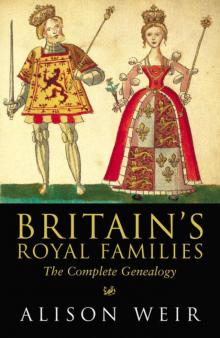 Britain's Royal Families: The Complete Genealogy
Britain's Royal Families: The Complete Genealogy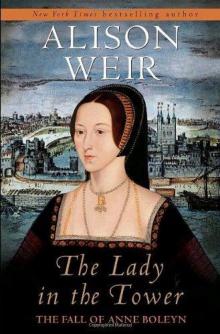 The Lady in the Tower: The Fall of Anne Boleyn
The Lady in the Tower: The Fall of Anne Boleyn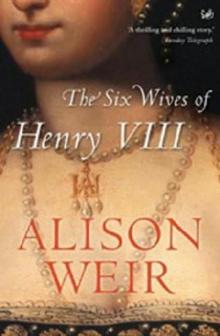 Six Wives of Henry VIII
Six Wives of Henry VIII Elizabeth of York: A Tudor Queen and Her World
Elizabeth of York: A Tudor Queen and Her World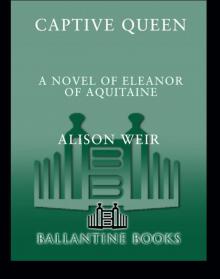 Captive Queen
Captive Queen Innocent Traitor
Innocent Traitor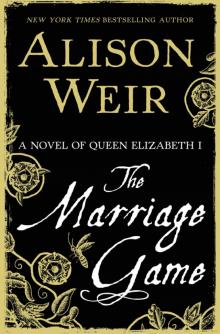 The Marriage Game
The Marriage Game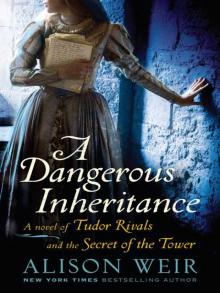 A Dangerous Inheritance
A Dangerous Inheritance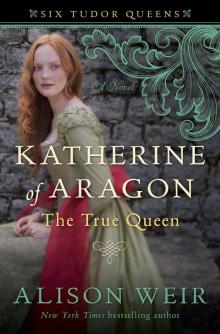 Katherine of Aragón: The True Queen
Katherine of Aragón: The True Queen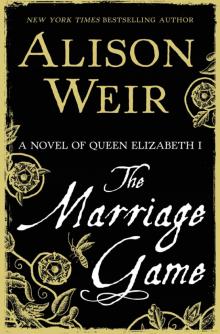 The Marriage Game: A Novel of Queen Elizabeth I
The Marriage Game: A Novel of Queen Elizabeth I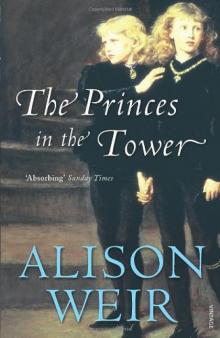 Princes in the Tower
Princes in the Tower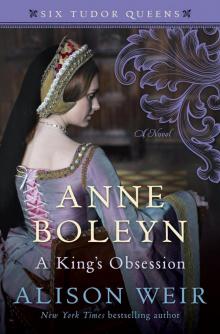 Anne Boleyn: A King's Obsession
Anne Boleyn: A King's Obsession Traitors of the Tower
Traitors of the Tower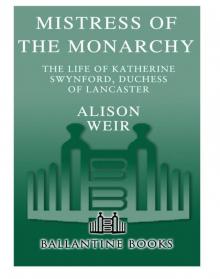 Mistress of the Monarchy: The Life of Katherine Swynford, Duchess of Lancaster
Mistress of the Monarchy: The Life of Katherine Swynford, Duchess of Lancaster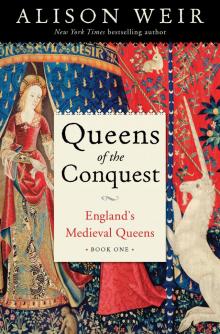 Queens of the Conquest: England’s Medieval Queens
Queens of the Conquest: England’s Medieval Queens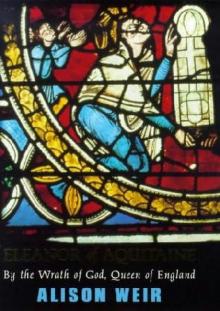 Eleanor of Aquitaine: A Life
Eleanor of Aquitaine: A Life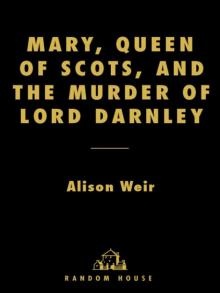 Mary, Queen of Scots, and the Murder of Lord Darnley
Mary, Queen of Scots, and the Murder of Lord Darnley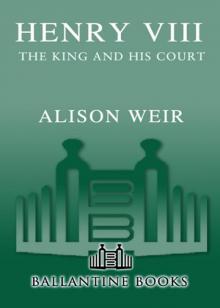 Henry VIII: The King and His Court
Henry VIII: The King and His Court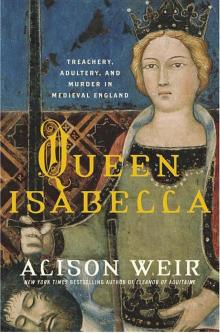 Queen Isabella: Treachery, Adultery, and Murder in Medieval England
Queen Isabella: Treachery, Adultery, and Murder in Medieval England Katheryn Howard, the Scandalous Queen
Katheryn Howard, the Scandalous Queen Arthur- Prince of the Roses
Arthur- Prince of the Roses The Wars of the Roses
The Wars of the Roses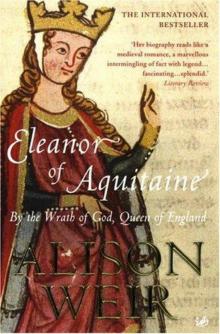 Eleanor of Aquitaine: By the Wrath of God, Queen of England
Eleanor of Aquitaine: By the Wrath of God, Queen of England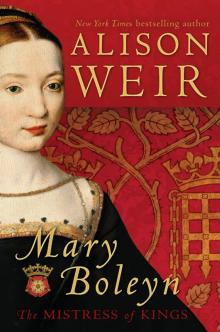 Mary Boleyn: The Great and Infamous Whore
Mary Boleyn: The Great and Infamous Whore Jane Seymour: The Haunted Queen
Jane Seymour: The Haunted Queen Anna of Kleve, the Princess in the Portrait
Anna of Kleve, the Princess in the Portrait Lancaster and York: The Wars of the Roses
Lancaster and York: The Wars of the Roses The Grandmother's Tale
The Grandmother's Tale The Princess of Scotland (Six Tudor Queens #5.5)
The Princess of Scotland (Six Tudor Queens #5.5)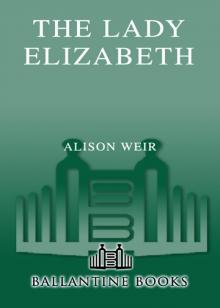 The Lady Elizabeth
The Lady Elizabeth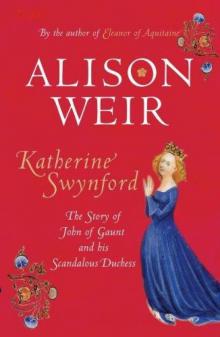 Katherine Swynford: The Story of John of Gaunt and His Scandalous Duchess
Katherine Swynford: The Story of John of Gaunt and His Scandalous Duchess The Curse of the Hungerfords
The Curse of the Hungerfords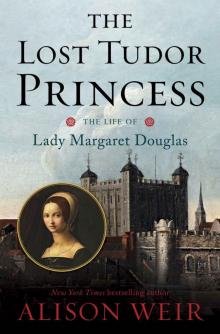 The Lost Tudor Princess: The Life of Lady Margaret Douglas
The Lost Tudor Princess: The Life of Lady Margaret Douglas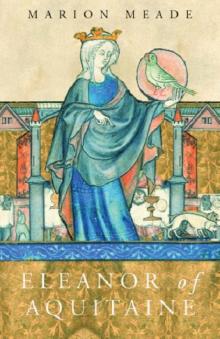 Eleanor of Aquitaine
Eleanor of Aquitaine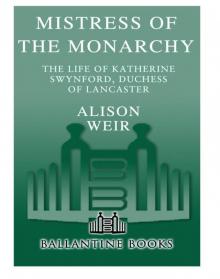 Mistress of the Monarchy
Mistress of the Monarchy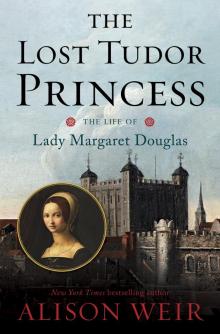 The Lost Tudor Princess
The Lost Tudor Princess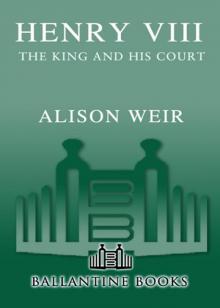 Henry VIII
Henry VIII Anne Boleyn, a King's Obsession
Anne Boleyn, a King's Obsession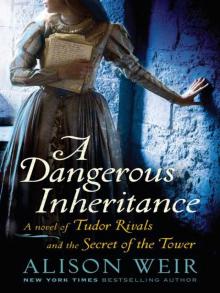 A Dangerous Inheritance: A Novel of Tudor Rivals and the Secret of the Tower
A Dangerous Inheritance: A Novel of Tudor Rivals and the Secret of the Tower Elizabeth of York
Elizabeth of York Katherine of Aragon, the True Queen
Katherine of Aragon, the True Queen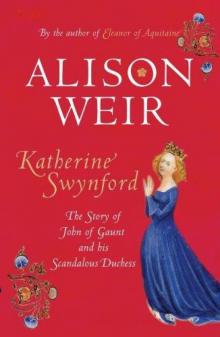 Katherine Swynford
Katherine Swynford Wars of the Roses
Wars of the Roses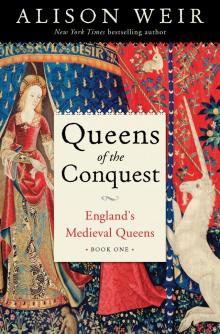 Queens of the Conquest
Queens of the Conquest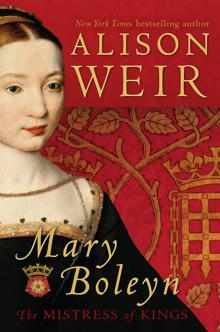 Mary Boleyn
Mary Boleyn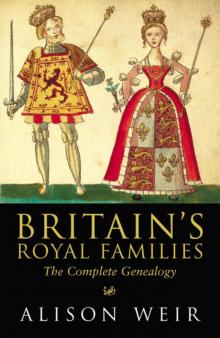 Britain's Royal Families
Britain's Royal Families The Tower Is Full of Ghosts Today
The Tower Is Full of Ghosts Today Life of Elizabeth I
Life of Elizabeth I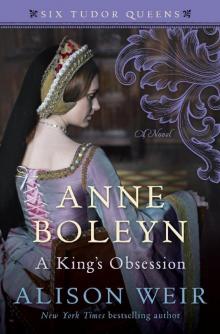 Anne Boleyn A King's Obssession
Anne Boleyn A King's Obssession Lancaster and York
Lancaster and York Jane Seymour, the Haunted Queen
Jane Seymour, the Haunted Queen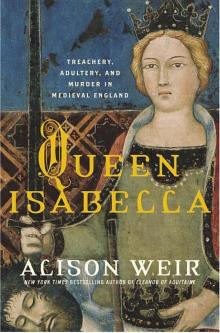 Queen Isabella
Queen Isabella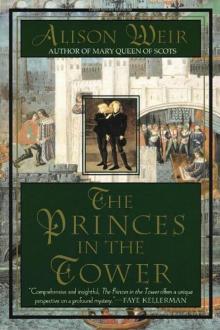 The princes in the tower
The princes in the tower